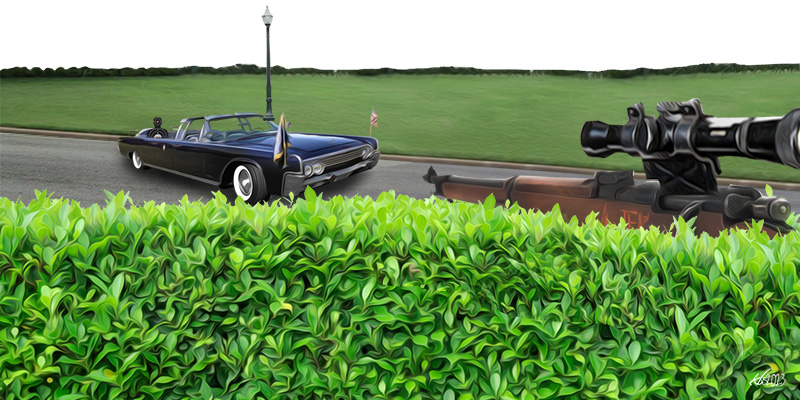Picture this. An afro-sporting, mean-looking, boxer-punching sterro with the attitude of a highbrow Cinderella is out to save you. He is in shades, and chains and… hold up! Is that polyester?! The ultimate retro bad boy looking for the bad boys. He is not Batman. Nor is he Superman, he’s a bit of both. Patrolling the streets of Nairobi, when it switches from metropolitan NBO to seedy Nairobbery. Smoking out hardened criminals while driving a Peugeot 504 in mid-1990s Nai. Oh, one more thing: make sure that your picture is sepia-toned, that old-school filter that Instagram babes like to use. A red-ribbon tied menacingly across his forehead. A mean mien roaring the ultimate fighting cry, Kama mbaya, mbaya! He is out for blood, emotionless and guileless, all stances and stage punches, out to rescue what was her name? Oh yes. Brittania Zimeisha, the striking damsel-in-distress played by Patricia Kihoro. You know Patricia Kihoro, right? You should. But, wait, who is our hero? What is he?
He is the mononym, the man, the myth, the legend. He is Makmende. Makmende, the sterro. Makmende the starring. Makmende, the otero. Makmende, the buda, the only man who DJ Afro could bring to life with a quip of call me budaaaa. Makmende was the childhood hero of our times. Depending on your moral flexibility, he could be the promised Messiah or the pantomime villain. The kimonda—some might say an ass-kicking “bully”—but that doesn’t matter. We played Police & Robber in the streets of KaNairo wielding our fake dushnyaos before Makmende inadvertently came and rescued the day. Makmende always rescued the day. He was the original palimpsest of stories, yearning to be told.
Hush-hush, the mythical Makmende is around. Makmende as himself (duh) in the single Ha-He. There is a new sheriff in town. The stars aligned, the ducks in a row, astonishment meets affirmation and through Makemende, Ha-He virals to critical mass. The Wall Street Journal followed dozens of blogs, including a term paper, in praising Just a Band for being the first Kenyans to spark a Twitter fire and gain 100,000 YouTube views in a blitz. This, by the way, is in 2010. Makmende caught on like a house on fire: shareable, affable, and meme-able before memes were memes and trending topics could not be tracked by RSS feeds but travelled by word of mouth and speed of feet. Makmende is fast but he is never in a hurry.
“Juu tuko works mzeiya
Evacuate the area”
Makmende amerudi. Just a Band wamerudi. Evacuate the area.
Of course, they never really left, at least not for me. As a young boy living in Nairobi, Just a Band defined my adolescence, teenagehood and early adulthood; I grew up under the lull of their synths and eclectic rhythms. This band that was formed in 2003, the year after President Moi left office, the man who ruled Kenya by fiat. You know President Moi, right? You should. It must be said though, that Moi loved choir music, and who knows, maybe the whims and charms of an all-boy band would have taken him? Maybe their laid-back grooves would have softened his rule had their music caught him as he skulked about the Nyayo House basement? Maybe Makmende would have been Moi’s right hand, relegating the king’s hand Hosea Kiplagat to secretarial duties—as long as Makmende would add a tie, you know, to make it official, all pun intended.
On 3 June last year, Just a Band announced the end of their two-year break (it had ended up being six years), capturing the imagination of a nation with the unexpected but-we-told-you-we’d-be-back announcement:
“…the hiatus is officially over and the four of us are back at work as Just a Band… We each went out into the world and had a bunch of adventures, and we needed time to catch up on one another as humans and friends…”
The friends in this case are Bill “Blinky” Sellanga, Daniel Muli, Mbithi Masya and Jim Chuchu who met as students at Kenyatta University. It is like something was in the water at KU, you just don’t know what. (Well, the marketing boss at KU would have been pulling out hairs when Kenyan musician Krispah aka Ndovu Kuu in his hit song Ndovu Ni Kuu immortalised the institution, singing: “Mtoto wangu akiitwa KU ntakataa, Hakunaga masomo KU nmekataa”. Of course, he later claimed that KU could mean anything, from Kabianga University to Kukula Ugali. I guess if the shoe fits?…)
I grew up under the lull of their synths and eclectic rhythms.
See, Just a Band has never been… just a band. Their unique blend of funk, electronic and DIY charm strung together under a base of local influences took the world by storm following the release of the Ha-He music video. During a key tension moment in Ha-He, Makmende is threatened by a man in a red tie who asks, “Are you a dreamer?” Makmende answers to nobody, lighting up our poor fellow with blows, a dream fulfilled.
Dreams, of course, are what mark popular culture. Some dreams are quite obvious, almost tangible, they exist in the forefront of our minds. Others exist in the far recesses of our subconscious. Just a Band is built on the beauty of dreams.
In 2008, my dream, so to speak, was to pass the KCPE exams. But that same year Just a Band fulfilled a subconscious dream, they released their first album: “Scratch to Reveal”. Their work was almost instantly iconic. Their video for the song “Iwinyo Piny”, animated by Daniel Muli, featured a giant turtle floating over Nairobi with a DJ on its back. The group was self-taught, using YouTube tutorials to pick up new skills, including animation. Their off-the-cuff rendition speaks to the studied effortlessness with which Just a Band does their cool, upbeat, trancy music. Afro-specific and yet possibly from anywhere.
Their unique blend of funk, electronic and DIY charm strung together under a base of local influences took the world by storm.
In an interview with Rootsworld during their Rush Gallery 2012 Brooklyn (New York) installation Kudishnyao! Daniel Muli says, “The name of the band is actually a joke. Sometimes we are trying to do projects that are supposed to mean something, and if all we do is give the moral of the story, it can be very boring.”
Like other African artists of their generation, the band is hyper-aware of trends, drawing on the fragments of pop culture that have penetrated Kenya and shaped their sensibilities: the Blaxploitation flicks popular throughout Nairobi in the 80s and 90s, the music of Daft Punk, the Tupac/Biggie Smalls/Fugees, and the Bones Thugs and Harmony tapes they traded as kids in Nairobi schoolyards. Just a Band famously imposed themselves as the East African art scene’s DIY honchos, directing their own videos, producing their own music, and creating their own artwork.
They dared to dream. In April 2016, the dream was deferred. Just a Band announced a hiatus to pursue solo projects.
Just… where did they go?
Jim Chuchu had quietly broken from the group a few years earlier than their announced hiatus and together with Njoki Ngumi and George Gachara, had founded The Nest Collective, a Nairobi-based artists group that focuses on film, fashion, music, literature, and everything art. They released Stories of Our Lives, a controversial film that celebrates the narratives of Kenya’s queer community amid pervasive societal censure and maltreatment. However, on 3rd October 2014, the Kenya Film Classification Board (KFCB) restricted the distribution and screening of Stories of Our Lives in line with section 16(c) of the Film and Stage Plays Act, objecting that the film “has obscenity, explicit scenes of sexual activities and it promotes homosexuality which is contrary to our national norms and values”.
No matter, the ground-breaking film inspired others, such as the critically acclaimed Rafiki, the first Kenyan movie to screen at the Cannes Film Festival. He is also co-founder of the HEVA Fund, the first organisation in the region dedicated to making capital investments in the creative sector and building financial infrastructure around creative pursuits in East Africa.
Animator and illustrator Daniel Muli spent his hiatus creating a graphic novel that “he’s been talking about for years”.
Blinky Bill released “We Cut Keys While You Wait”, his first solo project, in 2016. The extended play (EP) was a six-song offering featuring Kenyan acts Shappaman, Sage Chemutai and Maia Von Lekow. The EP saw Blinky secure deals with Sony Music France, which distributed his first album “Everyone’s Just Winging It And Other Fly Tales” (Lusafrica/The Garden), 12 groovy tracks between rap, funk, nu-soul and electro which favour the vibrant Kenyan urban scene (Muthoni Drummer Queen, Sage…) and the wider alternative African sonosphere (Petite Noir, Sampa the Great, Nneka). He has been a creative force behind many Kenyan productions for the likes of MDS, Fena Gitu and EA Wave.
Their off-the-cuff rendition speaks to the studied effortlessness with which Just a Band does their cool, upbeat, trancy music.
He talks fondly of his stage name “Blinky Bill”, which he claims he adopted after seeing his name in a newspaper and thinking that it looked too boring. The Australian cartoon of the same name, which was also his nickname in high school, inspired the name.
Mbithi Masya launched a successful film career. His first feature film, Kati Kati won several international awards, including the International Federation of Film Critics (FIPRESCI) award in the Discovery Programme at the 2016 Toronto International Film Festival (TIFF). FIPRESCI described his work as “an exciting and unique new voice in cinema”.
An acclaimed director, you might not know that Mbithi is behind several advertisements in the country including Betika’s “Get Ready For Big”, Sauti Sol’s “Extravaganza” and Blinky Bill’s “Mungu Halali”.
*
Just a Band’s return doubly impressed Buddha Blaze, a well-known authority on all things hip-hop and entertainment. “They [Just a Band], are the pioneers of alternative sound in Kenya,” he tells me. “They opened up a lot of opportunities for others and it is time they came back as the leading light.”
But has the industry moved on from them? “This is the right time for JAB to be back. They have grown individually, simultaneously, as the Kenyan music scene has grown.”
But what exactly is the Kenyan music scene?
It was much easier to define a Kenyan musician in the 80s and 90s when it was mostly benga. “Our identity from the seventies has always been benga. Eighty per cent of the vast majority of contemporary artists drawn from all over Kenya from the likes of Ken wa Maria to the late Musa Juma play Benga,” according to Tabu Osusa, founder of Ketebul Music.
Buddha Blaze offers a subtle take: “Kenyan music has been an opportunity to explore different sounds. From Ogopa to Genge to Chipuka to Benga to Kapuka, Kenyan music will one day evolve to become a single sound. Till then, we enjoy the variety of experiments.”
Kenyan music defies definition. It is an alchemy of sorts, taking something from the influences of rhumba, Afropop, trap, hip hop, Afrobeat, soul, and RnB, making it appealing to a variety of audiences. It rejects the neat square boxes of identity that think they’ve finally figured it out. Its identity is formless. It’s everything and nothing in particular, sometimes zeitgeist fever, bravura and bravado; sometimes falling short of the uniqueness and authenticity of our history and past lives.
It was much easier to define a Kenyan musician in the 80s and 90s when it was mostly benga.
Just a Band redefined what it means to be an urban Kenyan. A Nairobian in particular. They made it cool to be different before it was cool. It was cool to like Just a Band. It still is. Their funky music slowly became the soundtrack of Nairobi, in its innocent desires and its dawning regrets; absorbing alternative Nairobi into their very soul. From West-of-Uhuru-Highway to the flats of Donholm to all the phases of Buru.
Their music filled the empty, undefined spaces inside us. Inside me. When a Just a Band track played, our eyes would dart around in a search for longing, our bodies contorting in delightful delirium and our hearts racing in tandem to the rhythm. When Just a Band took a hiatus, they not only left a gaping hole in my soul but one in the Kenyan music space as well.
Listening to their new singles (“Save My Soul”, “Watu!” and “Echo” — a one-track album) I wonder whether I have all along been suffering from acute nostalgia: did I want Just a Band back because of what they can do? Or because of what they used to do?
Is it because of the influence they had on other artists? The cool mien and DIY-ness of Chris Kaiga? The easy flow and shrap undertones of Boutross? The gwezz rap of Lukorito, and that nod to JAB’s music by XPRSO? Who, if you squint hard enough at, you may just see traces of where they mined their inspiration. Let’s not even get started on the devil-may-care vibe check of Lil Maina’s songs. Who says he is not a rapper. Just a guy having fun with sounds. Sound familiar? You know Lil Maina, right? You should.
If President Moi were reading this, he would want me to be honest, so I will be. The new songs have not kindled a spark in me, and I prefer to cover myself in the warm blanket of their past hits—I am trapped in my childhood, teenagehood and all the other -hoods. So go ahead and listen to “Winning In Life” featuring the Grammy-winning trumpeter Owuor Arunga, or to “Iwinyo Piny”, a tragicomedy. Indeed, my all-time favourite Just a Band song is Probably Just For Lovers, from their third album, “Sorry For The Delay”.
“Eeeehhhh I am here again, falling in love again.”
Like Just a Band, I too am a lover. They croon, the bruised romantics at the height of their powers. Both tremulous and torrential, and if you’re not converted, you never will be.
But I’ve always been in love with them. I loved their experimentation. I loved their diversity. Just a Band was what I dreamt a musician should be, and I suspect it is what deep down I want to be.
Their funky music slowly became the soundtrack of Nairobi, in its innocent desires and its dawning regrets.
Just a Band’s voice is always that of someone confiding, not emoting. They sound the way you sound if you could speak of the things you dream. (In case you are wondering if I achieved my dream and passed my KCPE in 2008, I did.)
If you’ve never heard their work before, don’t start with the 82’ material — named so because 1982 is the year all three members were born. Though it has its charms, it throws you straight into the thick of things. Listen instead to the “Scratch To Reveal” album; that’s the best way to ease into their vibe. To ready yourself to experience the band back together for their last ever world tour. Maybe that’s what I need to accept that they’ve changed, that I’ve changed.
They took a break as a group so they can explore different paths and become stronger as individuals. Here’s the thing though, Just a Band — Dan, Bill, Mbithi, Jim — for me, and for countless others who listened to you on headphone cables tucked into the pocket of their jeans, legs cruising on the Tom Mboya Streets and Moi Avenues of Sakaja’s Nairobi through Nairobbery to KaNairo, you never left.








